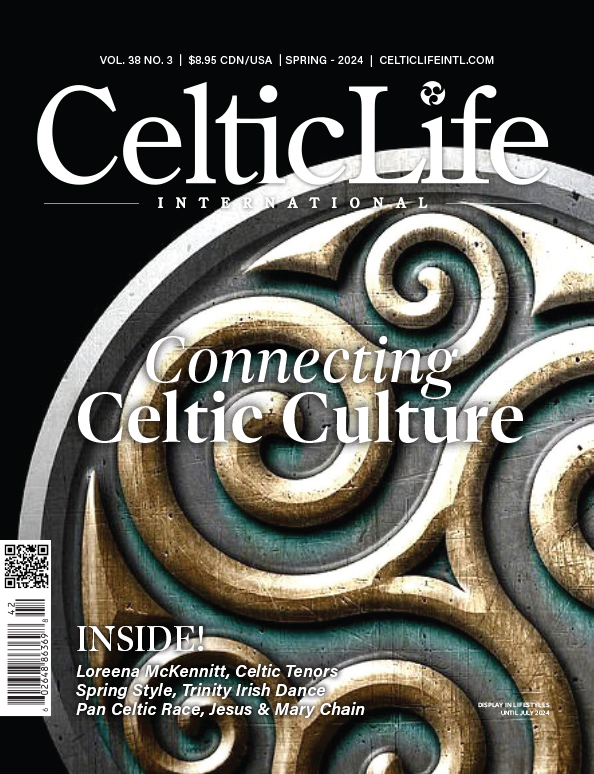
The Celtic Empire at its peak stretched from Eastern Europe all the way to England, Wales, Scotland and Ireland. Many of the regions and tribes within the Celtic Empire had their own pantheon of gods and goddesses, while some of these deities were worshiped widely. This article focuses solely on the Welsh Celtic Goddesses and Gods but is by no means an all-inclusive list.
The Welsh Celts were a proud group of people – their gods and goddesses reflected their beliefs and values. Some of the Welsh goddesses and gods are also found in the English, Scottish and Irish Celtic pantheons. This is because as people traveled or conquered neighboring peoples, they brought their deities with them.
Aeronwen
Aeronwen is thought to be the same goddess as Agrona, a war goddess whose name means “carnage”. She is a Welsh Goddess of fate – determining who wins and loses in battle. The River Dee is dedicated to Aeronwen and is where sacrifices were made in her name. There is also speculation that Aeronwen is the Welsh version of the Irish warrior goddess The Morrigan. Aeronwen is associated with the color black, the number 3, and the battlefield.
Arianrhod: Welsh Goddess of the Moon
Arianrhod is one of the more well-known Welsh Goddesses, though there isn’t a whole lot of information on her from the past. Her name means “Silver Wheel” which refers to the moon. Because of this, she’s regarded as a lunar goddess – associated with the moon and women. This Welsh Goddess is mentioned in the fourth branch of the Mabinogi as a mother of twin boys – Dylan ail Don and Lleu Llaw Gyffes. She is the daughter of the Great Goddess Don.
Blodeuwedd
Blodeuwedd is a Welsh Celtic Goddess that takes the form of an Owl. She is the wife of Lleu Llaw Gyffes (son of Arianrhod), and she was created from three things: meadowsweet flowers, broom, and oak by Gwydion (Arianrhod’s brother). The tales of Blodeuwedd paint her as a cheater and traitor to her own husband, as she takes on a lover and plots to kill her husband with him. In Judika Iles’ Encyclopedia of Spirits, she is referred to as the Welsh equivalent of Delilah (the woman who betrays Samson in the Old Testament). In modern times, many pagans see Blodeuwedd as a protector of women who are forced into betrothal. She brings these women aid when they want to choose their own lover OR to remain single. When she appears, she takes the form of an owl.
 Branwen
Branwen
This Welsh Goddess is the sister to Manawydan and Bran, as well as the daughter of Llyr. Branwen is known for her great beauty. In the Mabinogi, Branwen marries into an abusive relationship and is then rescued by her brothers. The battle results in pure destruction and only pregnant women survive in Wales. Branwen dies from a broken heart because of all the death she’s caused. She is a protector of abused women, and also a goddess of true love and healthy marriage.
The Bedd Branwen Period
A period of the Bronze Age is named after her – Bedd Branwen Period (1650-1400 B.C.). There is a ruined grave on the Alaw Riverbanks that is Branwen’s resting place. Archaeologists found two urns with human remains there; it is theorized Branwen was an actual person during the Bronze Age.
Cerridwen: A Favorite Welsh Goddess Among Neo-pagans
Cerridwen is a beloved Welsh goddess to neo-pagans and witches today. She is a “keeper of the cauldron of knowledge, a witch, herbalist and shape-shifting lunar deity” according to Judika Iles in the Encyclopedia of Spirits. The Book of Taliesin speaks of Cerridwen and her cauldron of transformation. Cerridwen married a giant named Tegidfoel and had two children – a daughter Crearwy and a son Afagddu. Cerridwen knows all forms of magic and wisdom – she brewed a potion that could grant her son all-encompassing knowledge. The color white belongs to her, and her sacred animal is the pig.
Modron
Not a whole lot is known of the Welsh Celtic Goddess named Modron. She is the Great Mother of the Divine Child Mabon and is linked to the Autumnal Equinox (aka Mabon). Modron may be the same Goddess as Rhiannon, as their stories are similar (children stolen from them in the night to be returned to them later after much suffering).
Rhiannon: Welsh Goddess of Strength and Horses
Perhaps one of my favorite Welsh Celtic Goddesses is the horse-goddess Rhiannon. She is talked of at length in the Mabinogi, as well as in other Welsh mythology. Some say she came from the land of the fae and was a princess before being taken as a wife for the Welsh hero Pwyll. Hers is a tragic story – she gives birth to a son who is stolen from her when he is a baby. She is blamed for the disappearance of the babe and suffers a brutal punishment until her son returns as a grown man. She bears her punishment proudly and humbly and her strength is therefore an inspiration to women. Rhiannon is associated with horses, and she is sometimes said to be the same goddess as the Celtic horse-goddess Epona. Birds are also her friends. She is now looked upon as a goddess of true love, motherhood, divination, strength, abundance, and happy marriages.
Listen to the article here;






















Leave a Comment